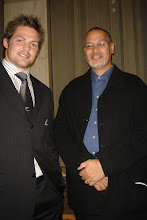 The Ocean Whalers had a huge impact on
The Ocean Whalers had a huge impact on “The missionaries were troubled by what they saw in Kororareka. Prostitution was one of the Bay's main industries and sexual favours were used in the purchase of many things, including muskets. Three-week marriages were commonly negotiated and many local women bore the tattoos of their itinerant lovers. In 1834 Edward Markham described how 30-35 whaling ships would 'come in for three weeks to the Bay and 400 [to] 500 Sailors requires as many Women, and they have been out [at sea] one year.... These young ladies go off to the Ships, and three weeks on board are spent much to their satisfaction, as they get from the Sailors a Fowling piece [shotgun],...Blankets, Gowns etc.' Another observer at the time described Kororareka as a 'Gomorrah, the scourge of the Pacific, which should be struck down by the ravages of disease for its depravity'. Its reputation as a lawless town with numerous bars and brothels saw it dubbed 'the hell-hole of the Pacific'.” (http://www.nzhistory.net.nz/culture/missionaries/kororareka)
The ships Captains also spent large amounts acquiring the fresh vegetables, meat and water that the crew would need. Almost all of this wealth made its way to the local Nga Puhi. While some was accumulated by the Ariki (Chiefs) most was distributed amongst the various Hapu and Whanau that made up the Iwi.
These Maori stood at a doorway to
This meant that jealous neighbours or even kin also tried to acquire their own Pakeha. They could all see what the presence of Traders made for the
As well as Chiefs like Ruatara, Moehanga, Te Pahi and Hika many younger Maori journeyed to
The whalers also introduced disease to the local Maori, the most obvious being the STD’s that were spread amongst the ships girls. This led to a fall off in fertility. Other diseases also spread, but as has been noted
Probably the greatest effect was in the trade of Muskets. Maori quickly identified the value of muskets in hunting, it was also seen as valuable in combat, but the relative scarcity did not make them truly useful just now (More to come later).





No comments:
Post a Comment